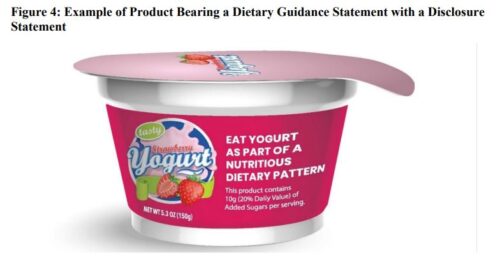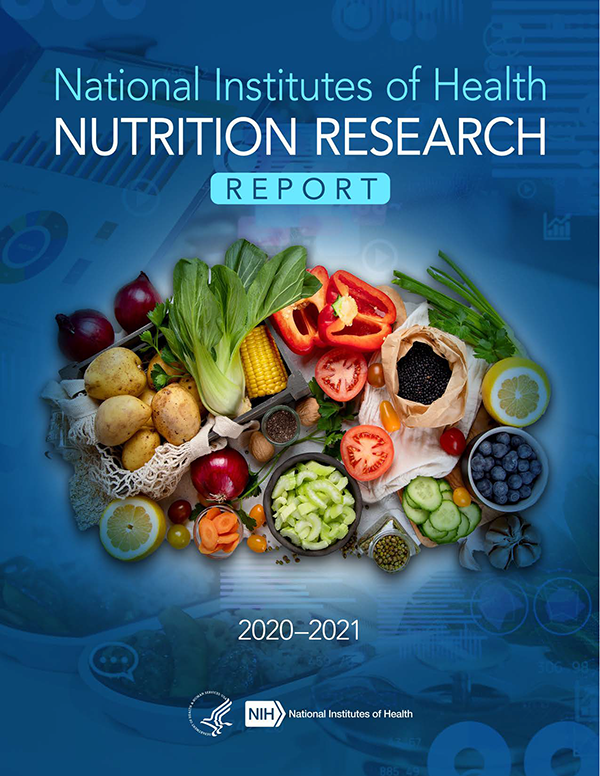The Edinburgh Medal, Continued
Here’s what I’m doing today during my week in Scotland to receive the 2023 Edinburgh Medal.
Food Politics is on vacation this week. We will be back next Monday, April 17. Enjoy the week!


Here’s what I’m doing today during my week in Scotland to receive the 2023 Edinburgh Medal.
Food Politics is on vacation this week. We will be back next Monday, April 17. Enjoy the week!

I am taking the week off and giving FoodPolitics a vacation while I am i
n Scotland to receive the 2023 Edinburgh Medal.
This is given during the Edinburgh Science Festival. A Tweet announcing my award is here. Information about the Medal Award ceremonly is here. Registration and more information are here.
Food Politics will be back next Monday, April 17. Enjoy the week! (Somehow, I think I’m going to!)

The draft guidance provides the agency’s thinking about the use of such statements, including recommendations that products contain a meaningful amount of the food, or category of foods, that is the subject of the statement, and that they also not exceed certain amounts of saturated fat, sodium and added sugars.
Translation: The idea here is to make sure that packages making health claims can back them up, or disclose relevant information. This will automatically eliminate health claims from lots of products (see post on “healthy”).
The FDA is proposing something like this.

 Here are the relevant documents:
Here are the relevant documents:
This is all open for public comment now. Here’s where to submit comments.
*******
For 30% off, go to www.ucpress.edu/9780520384156. Use code 21W2240 at checkout.

My son Charles, who lives in Los Angeles, sent me this gem from the L.A. Times: “The woolly mammoth is back — in the form of a meatball.”
A woolly mammoth meatball has been created from the animal’s DNA — 4,000 years after the beast went extinct.
The dish is made of cultured meat, grown in labs from animal cells. It used the DNA of the woolly mammoth, together with fragments of DNA from an African elephant, which is the animal’s closest relative still alive today. Vow, the Australian company that created the food...said it hopes that the project will challenge people to reassess the climate damage caused by cows and other livestock.
I knew you would want to know about this.
*******
For 30% off, go to www.ucpress.edu/9780520384156. Use code 21W2240 at checkout.

If you want to understand why it is politically impossible to transform the Farm Bill into legislation that promotes health, sustainability, and regenerative farming, take a look at the Environmental Working Group’s Website and Farm Subsidy Database.
This reveals that eight members of the House Agriculture Committee,received over $14 million in federal farm subsidies between 1995 and 2021.
The eight: Reps. James Baird (R-Ind.), Jim Costa (D-Calif.), Doug LaMalfa (R-Calif.), Frank Lucas (R-Okla.), Tracey Mann (R-Ks.), Mary Miller (R-Ill.), John Rose (R-Tenn.), and Austin Scott (R-Ga.)
This is a clear conflict of interest.
Are these agriculture committee members likely to put a stop to inappropriate subsidies? Doubtful. They ought to be taken off the Agriculture Committee immediately.
Note: the size of the subsidy doesn’t matter. Even small subsidies exert influence.
EWG also says that lawmakers who received commodity subsidies are also likely to be getting crop insurance subsidies.
But because those subsidies are not disclosed to the public, it’s not possible to determine whether some legislators are double dipping this way.
The EWG provides a list of all current members of Congress and family members who get farm subsidies here.
*******
For 30% off, go to www.ucpress.edu/9780520384156. Use code 21W2240 at checkout.

The FDA is under siege these days. Two reasons why.
As usual, Bill Marler gets right to the point.

Two top food officials at the FDA have retired recently.
Food and Drug Administration Director of the Center for Food Safety and Applied Nutrition (CFSAN) Susan Mayne announced that she will retire on May 31, 2023. Dr. Mayne has served as Director of CFSAN since January 2015. Another retirement among FDA leadership occurred earlier this year when FDA Deputy Commissioner of Food Policy and Response Frank Yiannas retired on February 24, 2023.
Frank Yiannis, formerly deputy commissioner for food policy at the FDA, testified to Congress:
Yiannas said that the FDA’s structure and culture exacerbated delays and that the agency had no data system in place to monitor key food supply chains. While Abbott is responsible for the safety and testing of its own powdered formula, he said, the sickened children and months-long shortage “was all a preventable tragedy” had FDA acted more urgently.
To deal with the uproar about infant formula, the FDA has just released:
But this will not be enough.
Helena Bottemiller Evich’s most recent Politico report is titled “‘Lessons have not been learned’: FDA knew of positive test months before latest infant formula recall.”
And another recall of infant formula occurred more recently.
All of this increases the urgency of the calls on FDA to pay more attention to food issues.
Congress: Act now!
*******
For 30% off, go to www.ucpress.edu/9780520384156. Use code 21W2240 at checkout.

The potato industry is hard at work funding studies to relieve any anxiety you might have about eating potatoes. For the record, I think they are delicious in almost any form. In moderation, of course.
Two items.
I. A press release from the Idaho Potato Commission: “Idaho Potatoes Are First Vegetable to Participate in American Diabetes Association Better Choices for Life Program.”
The purpose of the partnership is to help educate tens of millions of Americans on ways they can add Idaho potatoes to their meal plan.
Diabetes is one of the country’s greatest health crises…With a mission to prevent and cure diabetes and improve the lives of all people affected by diabetes, the number one question the ADA receives is, what can I eat? Many wrongly believe they cannot eat potatoes.
“We want those living with diabetes and prediabetes to feel confident eating potatoes with their breakfast, lunch or dinner as long as serving size and preparation recommendations are followed,” explained Jamey Higham, President & CEO, IPC.”
Comment: You can’t make up this stuff.
II. A funded study. Several readers sent me this one:
The study: Rebello CJ, et al. Low-Energy Dense Potato- and Bean-Based Diets Reduce Body Weight and Insulin Resistance: A Randomized, Feeding, Equivalence Trial . Journal of Medicinal Food. 2022;25(12). https://doi-org.proxy.library.nyu.edu/10.1089/jmf.2022.0072
Conclusion: “Potato and Bean diets low in energy density were equally effective in reducing insulin resistance and promoting weight loss in individuals with impaired blood glucose control.”
Funding: “This work was supported in part by an investigator-initiated grant from the Alliance for Potato Research and Education …The funders (Alliance for Potato Research and Education and the National Institutes of Health) had no role in the design, analysis, or writing of this article. The content is solely the responsibility of the authors and does not necessarily represent the official views of the sponsors or the National Institutes of Health.
Comment: The point of this study is to demonstrate that potatoes do not, as many believe, raise insulin and blood sugar levels.
The authors of the paper say: “We demonstrated that contrary to observations from epidemiological studies, potatoes do not adversely affect the glycemic response.”
But look at how the investigators prepared the potatoes: “To enhance resistance to starch and dietary fiber components, the potatoes were boiled with skins, refrigerated for 12 to 24 h before the whole potato was incorporated into the meals.”
That’s one way to reduce the blood sugar response to potatoes. It works!
*******
For 30% off, go to www.ucpress.edu/9780520384156. Use code 21W2240 at checkout.

While I’m catching up on items I’ve been wanting to post about I ran across this report from NIH about its nutrition research initiatives.

Some highlights:
I did not know much of this and am happy to have the report.
The documents
*******
For 30% off, go to www.ucpress.edu/9780520384156. Use code 21W2240 at checkout.
